
Must Have Essential Oils for Mast Cell Activation Syndrome and Histamine Intolerance
I remember the first time I smelled a really high-quality essential oil. I had gone to a presentation on therapeutic uses of essential oils.
It was almost 20 years ago. I walked into that room with a major headache. You know the kind of headache that just clouds everything?
Do you ever get those?
I didn’t know back then that I had both Mast Cell Activation Syndrome and Histamine Intolerance. I certainly didn’t know the root triggers for my headaches back then. So, I didn’t know how to stop them. Like I do now.
I still remember clearly when the sample of therapeutic-grade Frankincense was passed around. I smelled it, skeptically. I was quite suspicious about all the claims being made about these oils.
But then, with one good sniff, my headache went away. It was so dramatic. I was then hooked and wanted to find out more.
I had tried several other types of essential oils before. They never did much for me, honestly.
This therapeutic grade Frankincense, though, was vastly different than the store-bought essentials oils I’d tried.
I’ve always been skeptical by nature. There are so many hyped-up health claims out there that aren’t true. They take advantage of people. I’m always on the look out for that.
I also want to know how and why things really work.
I didn’t understand how smelling something could change my symptoms so quickly. So, I became fascinated with learning how that therapeutic grade Frankincense took away my headache. I dove into the legitimate research and later took doctorate level courses in Essential Oils.
I dove deeply into studying the effects of essential oils in these areas:
- Limbic/Nervous System/Brain
- Immune System
- Hormone System
- Digestive System
- And other systems in the body.
I’ve done a lot of study since then on the healing power of specific plants. It’s funny how you can be so skeptical about something at first. But later becomes something that is core to what you do.
I now work quite a bit with essential oils in my practice. And I want to share with you what I’ve learned about them that may help you as well!
Let’s start with the basics about Essential Oils and Essential Oil Safety. Then you’ll learn which oils are best for Mast Cell Activation Syndrome and Histamine Intolerance.
And you’ll also learn which Essential Oils to avoid for Mast Cell Activation Syndrome and Histamine Intolerance.
What are essential oils?
Essential oils are a natural substance extracted from plants. Those plant compounds protect the plant, feed it, and keep it healthy. They are vital to the plant’s health and survival.
Essential oils can also be used to help our bodies to function at their best.
Essential oils contain tons of chemicals that work on almost all your body’s systems! They can help your body get rid of toxins. And just their aromas can be healing. Remember when they got rid of my headache?
Here are some other ways that essential oils can help your body:
- Immune system support
- Cell regeneration
- Antioxidant properties
- Stress and frustration reduction
- Mood and emotion support
- Digestive system support
- Pain relief support
- Antibiotic and antimicrobial properties
- Skin health
They can even help you clean your house!
Are Essential Oils Legitimate?
Yes, they are! Some hospitals have started using essential oils for healing infections, reducing stress, and relieving anxiety and depression. Essential oils are found in many products, such as:
- Foods
- Skin and hair care products
- Cleaning products
- Supplements
- Other health products
And they have been used for centuries by healers in many different cultures.
But one of the most important things to know is that not all essential oils are created equal!
There are lots of different brands of essential oils on the market. And they vary greatly in quality, purity, and strength. Some contain added chemicals that can be toxic, especially to those with Mast Cell Activation Syndrome and Histamine Intolerance.
I have researched many different essential oils. And I only use or recommend therapeutic grade essential oils. I will tell you about the ones I recommend soon..
First, I want to tell you more about how to store essential oils.
When you use essential oils, it’s also important to store them correctly. You should only store them in glass or stainless-steel containers. And they should be stored in a cool, dry place.
Now let’s look at how to use Essential Oils
How to Use Essential Oils for those with Mast Cell Activation Syndrome and Histamine Intolerance
Essential oils are used in different ways. The most common ways to use them for Mast Cell Activation Syndrome and Histamine Intolerance are:
Diffusion: using a diffuser is the safest way. When you inhale the aroma of an essential oil, it enters your bloodstream and then is carried through the body.
Topically: this is when you apply essential oils directly on your skin.
Internally: some essential oils are ingested. But be careful! Not all are safe to take internally. And you don’t want to take them internally every day.
Therapeutic grade essential oils are very potent. Their aromas can be quite strong. And certain ones often must be diluted or diffused in order to be used safely.
Many essential oils are combined with carrier oils. Carrier oils are oils used to dilute essential oils to make them safer for using on your skin or internally.
Remember, essential oils are very potent. Some of them cause skin irritation and burning if used without a carrier oil. Carrier oils can also be used with an essential oil to extend or spread it to a larger area of the skin.
I recommend everyone with Mast Cell Activation Syndrome or Histamine Intolerance to use carrier oils.
Examples of common carrier oils are:
- Extra Virgin Coconut Oil
- Jojoba Oil
- Argan Oil
- Almond Oil
- Extra Virgin Olive Oil
How to dilute essential oils:
For a very gentle essential oil blend: 1 drop essential oil to 1 tsp carrier oil
For a mild essential oil blend: 2 drops EO to 1 tsp carrier oil
For a potent essential oil blend: 5 drops EO to 1 tsp carrier oil
As you can see – even the potent blend is very diluted.
But the safest option for those with Mast Cell Activation Syndrome or Histamine Intolerance is inhalation. Especially if you have supplement sensitivities.
Also, if you have Salicylate Intolerance, then inhalation is a great way to get these health supporting benefits without having to ingest or put these on your skin.
Start with just a little bit in a nebulizing diffuser like the one below.
Now…how to pick a good Essential Oil Company
Finding the best quality Essential Oil Companies when you have Mast Cell Activation Syndrome and Histamine Intolerance
I’m going to tell you soon about my top 6 go-to essential oils for Mast Cell Activation Syndrome and Histamine Intolerance.
But first, it is really important to make sure you get good quality essential oils. This makes a huge difference.
There are a number of great Essential Oil companies with very high-quality oils. And there are companies that look great, but really aren’t.
I know of at least one company that claims their products are pure essential oils. But when you dig deeper, you find they also use synthetic fragrance. I finally figured this out because that company’s oils always gave me headaches. And I reacted to their oils.
It’s very hard to tell which companies are the best without doing a lot of research.
This is my criteria in an essential oil company:
- Top quality extraction process
- No adulteration
- Lists all the ingredients
- Uses NO synthetic fragrance
- Independent, 3rd party GC/MS testing
- Excellent customer service
- Money back guarantee
- NO Multi-level marketing
- In business for at least 10 years
- Excellent reviews
- Good pricing
After experimenting and researching dozens of companies. And after working with over 100 different essential oils. My go-to company pick is Rocky Mountain Essential Oils.
They meet all the criteria above.
I’ve only ever had 1 problem. It was actually an error I made in ordering – totally my fault. And they still fixed it for me right way.
Now, there are other good companies out there too. This isn’t the only one. But it’s the one that meets all my criteria above. Has easy ordering. And has excellent customer service.
Top 6 Gentle Essential Oils for Mast Cell Activation Syndrome and Histamine Intolerance
These are my top Essential Oil Picks for those with Mast Cell Activation Syndrome and Histamine Intolerance.
Frankincense essential oil’s benefits include:
- Great mast cell support
- Anti-inflammatory properties
- Supports the immune system
- Supports respiratory health
- Reduces stress
- Has antimicrobial properties
- Eases muscle and joint soreness
Frankincense essential oil can be inhaled directly or used in a diffuser. It can also be applied to the skin (with a carrier oil).
Here is the frankincense that I recommend:

Holy Basil essential oil has several benefits for Mast Cell Activation Syndrome and Histamine intolerance. Some of these are:
- Loads of mast cell supporting properties
- Stress relief
- Supports heart health
- Contains antimicrobial, antibiotic, and antiviral properties
- Has been shown in research to help with asthma and respiratory illness, as well as with fevers.
- Contains anti-inflammatory properties and Vitamin C
- Helps with skin irritation
You can inhale holy basil essential oil, either directly or using a diffuser. You can also apply it to your skin, using a carrier oil such as coconut oil.
This oil is not to be used internally.
Here is a link to the holy basil essential oil that I recommend:
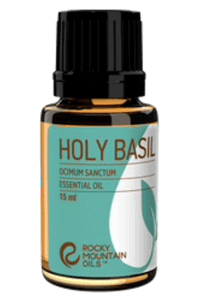
Organic Eucalyptus Radiata (not for internal use)
Organic Eucalyptus Radiata has benefits that include:
- Mast cell supporting properties
- Anti-inflammatory properties
- Antimicrobial, antibiotic, antiseptic properties
- Supports respiratory health and eases cough
- Can help ease joint and muscle pain
- Eases stress
It can be inhaled or applied to the skin (with a carrier oil). If you use a diffuser, organic eucalyptus radiata mixes well with other oils, including citrus, lavender, sage, ginger root, and several others.
It should not be taken internally.
Here is a link to the organic eucalyptus radiata that I recommend:
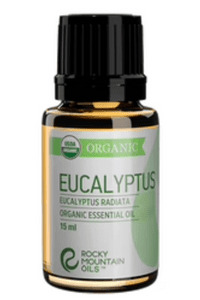
Organic Lavender Essential Oil
Organic Lavender Essential oil’s benefits for mast cell activation and histamine intolerance include:
- Support of mast cells
- Eases stress and anxiety
- Helps with insomnia
- Supports the immune system
- Soothes sore muscles and joints
It can be used topically or inhaled, either directly or using a diffuser.
You can ingest it. Dilute well if you do and only use on occasion.
Here is a link to the organic lavender essential oil that I recommend:
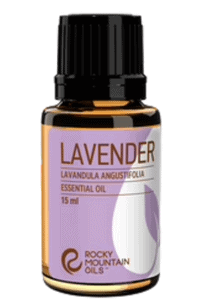
Ginger Root Essential Oil’s benefits for Mast Cell Activation Syndrome and Histamine Intolerance include
- Promote mast cell stabilization
- Contains antioxidants
- Supports digestive health
- Helps to uplift your mood
It can be used topically (with a carrier oil) or inhaled using a diffuser.
It can be ingested on occasion. But dilute it significantly if you try this.
Here is the link to the ginger essential oil that I recommend:
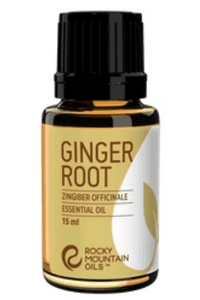
Myrrh Essential Oil’s benefits for Mast Cell Activation Syndrome include:
- Shown in research to reduce inflammatory cytokine levels
- Supports Mast Cells in several ways
- Strong anti-inflammatory properties
- Pain relief
- Antimicrobial properties
- Dental and gum health support
Myrrh essential oil can be applied to the skin (with a carrier oil).
It can also be used on the gums if diluted.
Here is the link to the myrrh essential oil that I recommend:

Bonus Essential Oil Nerve Calm Blend for those with Mast Cell Activation Syndrome and Histamine Intolerance
There are essential oil blends that can be helpful too. This blend has some great mast cell supporting oils. It already has the carrier oil, too. So you don’t have to dilute it.
It contains:
- Basil
- Helichrysum italicum
- Peppermint
- Marjoram
- in a base of 80% Fractionated Coconut Oil
Some members of my team find this really helps them sleep. I used this oil blend after a concussion and noticed that it really helped. It’s very soothing to the nervous system.
Not for internal use. This one is for diffusing or inhalation only.

Essential Oils to avoid if you have Mast Cell Activation Syndrome and Histamine Intolerance
There are some essential oils that you should not use if you have Mast Cell Activation Syndrome and Histamine Intolerance, because they have effects that can make your symptoms worse.
Here are some of those essential oils to avoid:
- Clove and blends with clove. Clove is histamine liberating. This means that it causes mast cells to release histamine.
- Cinnamon and blends with cinnamon – also histamine liberating
- Nutmeg and blends with nutmeg – also histamine liberating
- Citrus Essential Oils – don’t use internally
- Juniper, Pine, Spruce – avoid if allergic to these tree species
- Chamomile – avoid if allergic to ragweed
Who Should Use Essential Oils With Mast Cell Activation Syndrome and Histamine Intolerance
So, as you can see, if you have Mast Cell Activation and Histamine Intolerance, Essential Oils may be very helpful for you.
Essential oils can support your body with:
- Immune support
- Stress and anxiety
- Relieving joint and muscle pain
- Anti-inflammatory benefits
- Mast cell stabilization
- Antimicrobial, antibiotic, antiviral, and antiseptic properties
Essential oils can also promote:
- Immune system balance
- Emotional balance
- Heart health
- Healthy skin
- Respiratory health
If you are sensitive to perfumes, you may do fine with essential oils.
I find a big difference between fragrances and essential oils. I still can’t handle fragrances very well. Perfumes and scented products give me headaches.
Even some lower quality essential oils have given me headaches. But I later learned they were diluted with fragrances. So, they weren’t therapeutic grade.
But essential oils are a different story than fragrance/perfume. I feel so much better after using essential oils.
It is really about the quality. And picking the right Essential Oils for you.
Who Shouldn’t Use Essential Oils With Mast Cell Activation Syndrome and Histamine Intolerance
There are a very few people who can’t use essential oils.
Of course, if you are allergic to something, don’t use that essential oil. For example, if you are allergic to things in the ragweed family, don’t use chamomile. Use different oils, instead.
If you can’t take any supplement at all, then you should only do diffusing. Don’t use essential oils topically or orally if you can’t tolerate any supplements.
If you have salicylate intolerance, don’t ingest or apply essential oils topically. Try inhalation only.
If you get headaches or feel bad with any type of essential oil smell, you shouldn’t use essential oils.
These people usually have very serious toxicity and major limbic/parasympathetic dysregulation. This comes from things like mold toxicity.
But not everyone with mold toxicity has trouble with essential oils. I had major mold toxicity. And Therapeutic Grade Essential Oils never bothered me.
But I want you to know what to be thinking about.
More Ways to Support Yourself
- How Estrogen Dominance Affects Mast Cell Activation Syndrome & Histamine Intolerance
- How to Reverse Estrogen Dominance Naturally
- Safe Skincare for Those With Mast Cell Activation Syndrome & Histamine Intolerance
- The Ultimate Anti-Aging Facial for People with Mast Cell Activation Syndrome
Great Books on Essential Oils for Mast Cell Activation Syndrome and Histamine Intolerance
If you love Essential Oils as much as I do, you might like to check out these books:
Aromatherapy: An A-Z: The Most Comprehensive Guide to Aromatherapy Ever Published (5th ed.). London, England: Vermillion, a division of Random House UK.
The Complete Book of Essential Oils and Aromatherapy, Revised and Expanded: Over 800 Natural, Nontoxic, and Fragrant Recipes to Create Health, Beauty, and Safe Home and Work Environments (Revised ed.). Novato, CA: New World Library.
References
Bagetta, G., Cosentino, M., & Tsukasa, S. (2016). Aromatherapy: Basic Mechanisms and Evidence Based Clinical Use (Clinical Pharmacognosy Series) 1st Edition (First ed.). Boca Raton, FL: CRC Press.
Price, S., & Price, L. (2012). Aromatherapy for Health Professionals (Fourth Ed). London, UK: Elsevier.
Buckle, J. (2015). Clinical Aromatherapy: Essential Oils in Healthcare 3rd Edition. St. Louis, MO: Elsevier.
Tisserand, R., & Young, R. (2014). Essential Oil Safety: A Guide for Health Care Professionals 2nd Edition (Second Edition). London, UK: Elsevier.
*Some links in this website are affiliate links, which means Mast Cell 360 may make a very small commission if you purchase through the link. It never costs you any more to purchase through the links, and we try to find the best deals we can. We only recommend products that we love and use personally or use in the Mast Cell 360 practice. Any commissions help support the newsletter, website, and ongoing research so Mast Cell 360 can continue to offer you free tips, recipes, and info. Thank you for your support!






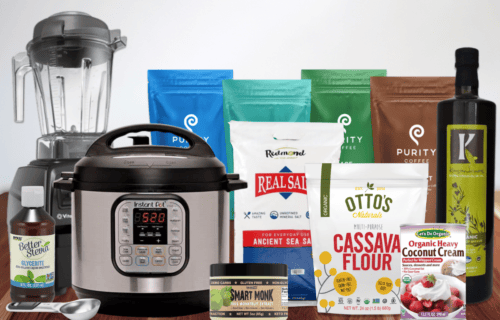
What “carrier” oils can you use besides coconut oil?
It’s stated in article:Extra Virgin Coconut Oil
Jojoba Oil
Argan Oil
Almond Oil
Extra Virgin Olive Oil
I also use arnica oil, calendula oil… There you go
raspberry seed oil is also great
carrot oil and broccoli oil are also good
Thank you so much for this information! I have been searching for reliable information on essential oils and MCAS. I used to use them often, and have avoided them since I developed MCAS, and thankful to have a direction to go forward.
Why is it important to stay away from MLM oil companies? This is not a loaded question, I genuinely want to know because I have a neighbor who wants to help me with samples of oils.
I’ve been a distributor for 2 MLM essential oil companies and didn’t like their practices. You have to buy through a distributor and can’t easily order on your own, or have to become a distributor. With becoming a distributor, there are required minimal purchases. There is always more markup to cover more marketing and upline profits. Also, I’ve seen the MLM essential oil companies be very profit driven over safety and strongly push internal use of oils at very unsafe levels to drive purchases. There have been many cases of organ issues with following those recommendations. All of these things just turn me off from using them and recommending these companies. I find that the MLM structure in essential oils creates too much opportunity for the drive for profit to supersede safety. There will be people upset at me for stating all of this, but I’ve been involved with 2 of these types of essential oil companies and didn’t want to expose my clients and followers to the issues I was seeing. I hope that all makes sense.
This is not completely true. With a specific company that i order from. I order what I want when i want. I NEVER feel pressure to sell to others and do not need to order a minimal amount to “stay active” I simply renew 1x per year for $25 and a get a specific bottle of oil priced at about that amount for free. I researched their practices compared to others before starting and I do not see any questionable practices within this company.
Hi Janet,
Thank you for sharing this information about your experience!
I totally agree. The good being done around the world, and the investment in science to expand the healthiest alternatives. I wouldn’t want to depend on big pharma to give me clinical studies and research. No cheapy company for me that buys from a questionalble middle man.
How to measure to make a bottle of lotion for the psoriasis/histamine skin?
These are the ratios I suggest for diluting essential oils in carrier oils such as EVCoconut Oil, Jojoba Oil, Argan Oil, Almond Oil.
For a very gentle essential oil blend: 1 drop essential oil to 1 tsp carrier oil
For a mild essential oil blend: 2 drops EO to 1 tsp carrier oil
For a potent essential oil blend: 5 drops EO to 1 tsp carrier oil
This is great. How about oregano oil for infections?
Hi Catlin, Yes, it can be helpful, but I would use it very cautiously. It’s extremely potent. Never use it undiluted.
I have read that eating citrus is bad if you are histamine intolerant. Can you diffuse citrus oils?
Hi Rhonda,
Some people do ok with diffusing citrus, but others don’t. Everyone is different. If you want to try diffusing a citrus oil, start with just a small amount the first time so you can see for yourself how it will be for you.
great article – thanks!
Thank you. I’m learning so much from your articles. Thanks for blessing us with your knowledge.
Thank you so much, Brenda!
Hi,
I wanted to know what is your thoughts on pink geranium essential oil ? I use it for my laundry and I tolerate it but I would like to make my own deodorant, which means it will get in direct contact with my skin everyday. I saw an article that it has stabilizing properties for mast cells but there aren’t any other sources :
https://www.tandfonline.com/doi/full/10.1080/09168451.2016.1148573
thank you in advance for answering and have a good day !
Hi Marianne,
Beth said this is one she doesn’t have much experience with, but she believes it’s one that shouldn’t be in direct contact with skin. It might be ok to use with a diffuser, though. And of course, always keep in mind that everyone is different, so if you decide to try it, go slowly. Just a little exposure at a time.
Hi Beth,
Are most oils tolerated if diffused? I have so many from a brand I trust but I’ve been afraid to use them in the last year and a half because my symptoms are worse.
I do use a topical headache blend that I seem to tolerate fine.
Hi Amy,
It really depends on a number of things. One would be the quality of the oil. Another would be how sensitive you are in general. If you aren’t sure, you can start with just a few drops for a short time and see how you do.
Thanks Beth, really helpful!
Also- some further online pages from Tisserand below, on dilution and safety for essential oils:
https://tisserandinstitute.org/essential-oil-dilution-chart/
(It says Holy Basil can only be used up to 1%, to avoid skin reactions, I assume for topical use).
https://tisserandinstitute.org/safety-guidelines/
Thank you so much for sharing this great information. If used topically, holy basil should definitely be diluted, for example in a carrier oil such as coconut oil. Diffusion should be fine. Hope this helps!
Rocky Mountain Oils doesn’t ship to my location, which other brands do you recommend for the Frankincense Serrata essential oil.
Hi Ted,
At this time, I don’t have any other frankincense to share. But I did check Rocky Mountain Oils’ site and it does show that they ship internationally. Hopefully they will be able to help you out!
To reply to Ted’s question, two Pure Frankincense resources I have used for more than 8 years:
*New Directions Aromatics
https://www.newdirectionsaromatics.com/products/advanced_search_result.php?keywords=frankincense
Hopewell Essential Oils.
https://hopewelloils.com/search.php
What are your thoughts on the Mountain Rose essential oils? This company states it sources responsibly, steam distilled and certified organic. I like their herbal teas too and have ordered from them in the past.
Hi Amy, There are many good essential oil companies, but of course it’s always important to do your research. At this time, we recommend Rocky Mountain and Vibrant Blue Oils which has some wonderful blends: https://mastcell360.com/VibrantBlueOils
As always, great info. I listened (late) to your talk with Vibrant Blue Oils but when I got on to order noticed so much of the blends have things I react to. All that citrus?! I do make a few homemade cleaning solutions with peppermint and tea tree, but every thing else (yes, your list of avoids is spot on!) including lavender, lemongrass and all the various tree resins, make me totally react. And this is me at my most stable!
This site has been most helpful in filling in gaps where my Docs just don’t know. I am going to look into the RMO Nerve Blend as it looks like I can tolerate those. I so need to sleep, at the right time, at night.
And thank you for this:
“If you get headaches or feel bad with any type of essential oil smell, you shouldn’t use essential oils.
These people usually have very serious toxicity and major limbic/parasympathetic dysregulation. This comes from things like mold toxicity.”
I may have to rethink my plan here.
Hi Liz, we are glad to hear that you found the FB live and this blog helpful. Just because you aren’t able to tolerate essential oils at the moment, doesn’t mean it may be a helpful tool down the road! It may be something you’re able to onboard in the future after you continue to work on mold toxicity and nervous system rebooting. Keep listening to your body, you’re doing great!
Hi, I’m wondering what you thoughts are on laundry products that are infused with some of the essential oils on the “avoid” list. I always use an extra rinse cycle and warm to hot water, so wondering if there is any risk left after it goes through all of that.
Hi Val, this will be highly dependent on your personal sensitivities as everyone is highly individual in what they can and cannot tolerate. You may just need to pay attention to how you feel and experiment with your current method and maybe using a different detergent to see if it makes any difference!
Wow wow wow! I didn’t know I had this sensitivity all my lifes until I get exposed to mold and all this investigation came to my life. My sensitivity went way more strong since living in mold. I started using essentials oils about 6 years ago. I started feeling great! I still say those years using essentials oils were my best years (I didn’t know I was living in mold and I had this sensitivity). I will get into essentials oils again. I miss them so much! I still use some but none that often. This information is so useful right now!
Hi Vanessa,
We are glad that you enjoy essential oils and found this resource helpful in learning how to incorporate them back in again. 🙂
Best,
Zack